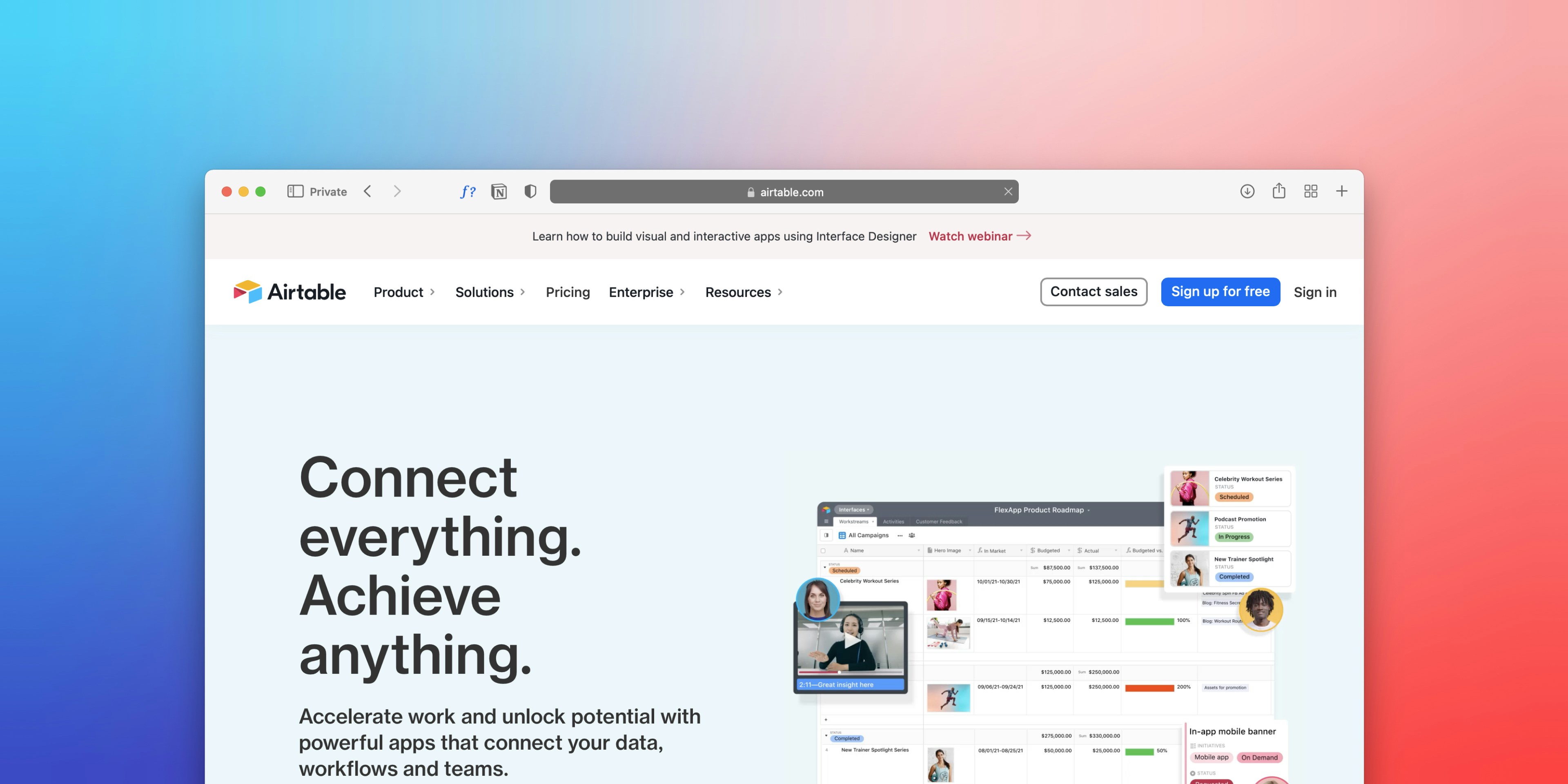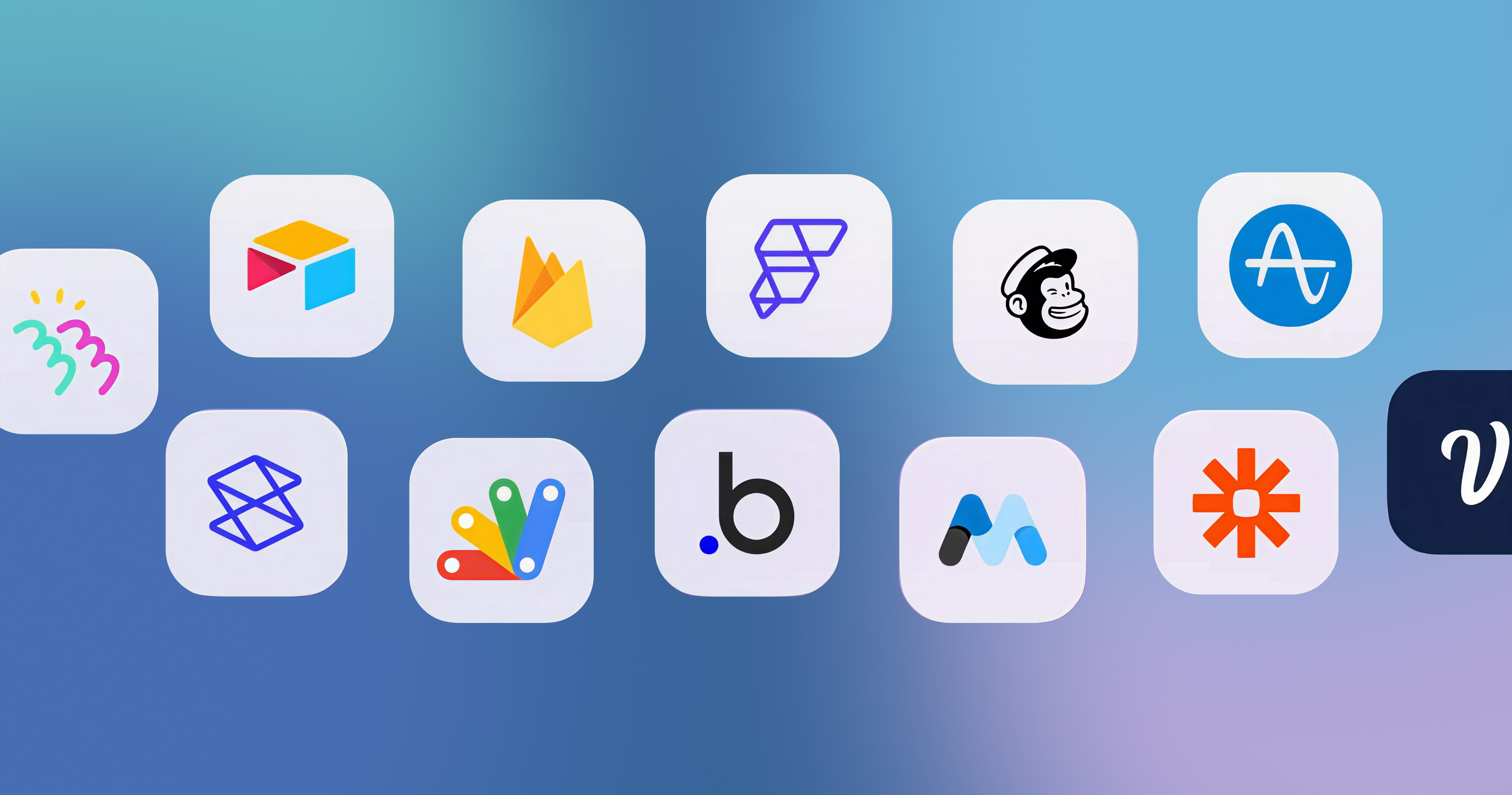-p-2000.png)


Webflow Cloud Beta: The Next Step in Building Smarter Web Experiences

If you’ve used Webflow before, you already know how easy it is to build beautiful websites without needing to touch complicated code. Webflow is popular because of its simple drag-and-drop system that makes designing feel more like building with LEGO than writing software.
Now, Webflow is taking things up a big notch with something new: Webflow Cloud (currently in beta), a platform that brings full-stack web apps to your website experience.
In other words, Webflow Cloud is not just about designing pages anymore. But a whole new way to build, host, and run powerful web apps (not just websites) all in one place. Until now, Webflow was mainly for creating and designing pages and CMS collections.
With Webflow Cloud, you can also take care of the techy, behind-the-scenes stuff like databases, logic, user interactions, and advanced features right inside Webflow. This means developers and businesses can build comprehensive digital experiences using API integrations and dynamic content management, without needing to switch tools or rely on additional platforms, like no-code systems.
In short, Webflow Cloud is opening doors for people to build smarter, more dynamic websites and apps without the usual tech headaches.
Let’s break down what this means and why it’s a game-changer.
What Is Webflow Cloud, and Why Should You Care?
We can think of Webflow Cloud as a full-stack web app development platform for your website experiences. Beyond the standard Webflow interface, it retains all the design features of the standard Webflow interface, and it offers so much more. With Webflow Cloud, you can develop not just websites but very advanced interactive features such as real-time updates, user logins, and custom content.
Before Webflow Cloud, you could easily create static sites and CMS sites, but dynamic, interactive websites would require much coding and using multiple tools. Webflow Cloud integrates the standard UI and developer environment into a one-stop solution that combines both design and backend features so that teams can collaborate more easily and deliver complex web apps in a much shorter time.
Why Is Webflow Cloud a Big Deal?
- All-Purpose Tool for Designers and Developers: The usual scheme would be that web designers and developers work on separate platforms and then try to combine these efforts. Webflow Cloud solves this problem, offering a single platform where designers and developers collaborate without having to go back and forth between tools. Once you streamline this, it saves time and effort.
- Launch Your Website or App Faster: With Webflow Cloud, there is no need to jump around different tools or platforms. Designers work on the visual design of the website, while developers can create custom features in the same environment. This streamlined workflow enables your website or web app to go live much faster, without unnecessary delays.
- Build Dynamic Web Apps, Without the Headache: It used to be that making an online store, membership site, or app that updates in real time involved complex coding and several tools. With Webflow Cloud, you can easily build these kinds of web apps right on the platform, giving you more control while saving time. Whether you want to put in an online store or a custom dashboard, it's all possible with Webflow Cloud.
- Supports Familiar Developer Tools: If you have a developer interest, you would not be required to take leave of your favorite tools in favor of Webflow Cloud. The cloud supports popular JavaScript frameworks such as Next.js and Astro to build fast and high-performance websites. So, a developer can use the same tools for Webflow Cloud, be it something simple or complex, while taking advantage of the easy-to-use platform. Learn more about why Webflow is good for developers.
- Hosting and Unbeatable Security: Webflow Cloud is built on AWS for reliable, scalable hosting and enhanced by Cloudflare’s global CDN and Workers to ensure your app or website loads quickly from anywhere in the world. Equip your website with strong security features, SSL encryption, and more to keep it safe from cyber threats while also staying optimized for Webflow SEO best practices.
Beyond all that, let's take a look into features that actually set Webflow Cloud apart:
- Support for Next.js & Astro: These are widely known frameworks used by developers to create fast websites. Webflow Cloud essentially allows these tools to be used alongside its own platform: essentially, high-performance websites and apps with the design freedom Webflow offers.
- GitHub Integration: For the GitHub users, Webflow Cloud allows you to directly connect your codebase with your GitHub repository. This web builder platform facilitates easier collaboration, version control, and updating, all while keeping your design and development in check with one another.
- Cloud Edition: A Webflow website is placed on a Webflow Cloud, backed by Cloudflare and AWS, known for fast, reliable, and secure hosting services. The site loads on time, and your data stays safe from threats online.
- Full-Stack Hosting: Webflow Cloud is much more than just hosting static sites. It is a platform in itself on which web apps can be built. All sorts of applications can be created: customer dashboards, e-commerce shops, you name it with full real-time updates. They provide you with everything you need to create complex interactive applications.
- SEO Tools: With Webflow Cloud, you won’t need to fret about SEO. It retains built-in tools that make the site search-engine friendly, thereby bringing more hearts to discover it online.
- Custom Dashboards and Tools: Not only that, Webflow Cloud also allows you to build your own internal tools. Got a team dashboard? A client portal? Webflow Cloud makes it really easy to create and manage this sort of web app.
- Highly Interactive Features: Create a custom product configurator or a user dashboard with ultra-interactivity built right in. Webflow Cloud opens doors for interaction that formerly might have required custom coding, but now it’s all baked right into the platform.
Although Webflow is arguably the most user-friendly tool in the industry, one needs to know how to explore its full potential in case one is going for custom or complex work. Those who are looking for experts, especially for custom projects, can connect with Seattle New Media. Whether you're planning a simple website or a fully featured web app, our experienced Webflow team can guide you every step of the way, including with Webflow Cloud.
As certified Webflow experts with a deep understanding of both design and development, we support you from initial planning and strategy to design, development, testing, and final deployment, ensuring your project runs smoothly and successfully. We help you save time, avoid costly mistakes, and achieve the best possible outcome that aligns with your business goals and user expectations. For more information, connect with us today.

FAQ
What is Webflow Cloud?
Webflow Cloud is a new version of Webflow, a cloud-based SaaS design tool and content management system (CMS) that lets you build not just websites, but full web apps too. You can design, manage content, and add advanced features like logins or real-time updates all in one place, without needing to use a bunch of different tools.
Can I build a web app with Webflow Cloud without knowing how to code?
Yes, you can, You don’t have to be a coding expert to use Webflow Cloud! Webflow Cloud introduces powerful tools for building full-stack web apps, but it’s primarily designed for developers. While some basic visual building is possible, especially for the frontend, creating robust functionality like user authentication, dynamic logic, and backend services typically requires coding.
Does Webflow Cloud work with tools like GitHub and Next.js?
Yes, it does. If you're a Webflow developer or working with one, Webflow Cloud supports tools like GitHub and popular frameworks like Next.js. So you can still use the coding tools you love while enjoying Webflow’s easy design features.
Marketing Team
Publisher
If you’ve used Webflow before, you already know how easy it is to build beautiful websites without needing to touch complicated code. Webflow is popular because of its simple drag-and-drop system that makes designing feel more like building with LEGO than writing software.
Now, Webflow is taking things up a big notch with something new: Webflow Cloud (currently in beta), a platform that brings full-stack web apps to your website experience.
In other words, Webflow Cloud is not just about designing pages anymore. But a whole new way to build, host, and run powerful web apps (not just websites) all in one place. Until now, Webflow was mainly for creating and designing pages and CMS collections.
With Webflow Cloud, you can also take care of the techy, behind-the-scenes stuff like databases, logic, user interactions, and advanced features right inside Webflow. This means developers and businesses can build comprehensive digital experiences using API integrations and dynamic content management, without needing to switch tools or rely on additional platforms, like no-code systems.
In short, Webflow Cloud is opening doors for people to build smarter, more dynamic websites and apps without the usual tech headaches.
Let’s break down what this means and why it’s a game-changer.
What Is Webflow Cloud, and Why Should You Care?
We can think of Webflow Cloud as a full-stack web app development platform for your website experiences. Beyond the standard Webflow interface, it retains all the design features of the standard Webflow interface, and it offers so much more. With Webflow Cloud, you can develop not just websites but very advanced interactive features such as real-time updates, user logins, and custom content.
Before Webflow Cloud, you could easily create static sites and CMS sites, but dynamic, interactive websites would require much coding and using multiple tools. Webflow Cloud integrates the standard UI and developer environment into a one-stop solution that combines both design and backend features so that teams can collaborate more easily and deliver complex web apps in a much shorter time.
Why Is Webflow Cloud a Big Deal?
- All-Purpose Tool for Designers and Developers: The usual scheme would be that web designers and developers work on separate platforms and then try to combine these efforts. Webflow Cloud solves this problem, offering a single platform where designers and developers collaborate without having to go back and forth between tools. Once you streamline this, it saves time and effort.
- Launch Your Website or App Faster: With Webflow Cloud, there is no need to jump around different tools or platforms. Designers work on the visual design of the website, while developers can create custom features in the same environment. This streamlined workflow enables your website or web app to go live much faster, without unnecessary delays.
- Build Dynamic Web Apps, Without the Headache: It used to be that making an online store, membership site, or app that updates in real time involved complex coding and several tools. With Webflow Cloud, you can easily build these kinds of web apps right on the platform, giving you more control while saving time. Whether you want to put in an online store or a custom dashboard, it's all possible with Webflow Cloud.
- Supports Familiar Developer Tools: If you have a developer interest, you would not be required to take leave of your favorite tools in favor of Webflow Cloud. The cloud supports popular JavaScript frameworks such as Next.js and Astro to build fast and high-performance websites. So, a developer can use the same tools for Webflow Cloud, be it something simple or complex, while taking advantage of the easy-to-use platform. Learn more about why Webflow is good for developers.
- Hosting and Unbeatable Security: Webflow Cloud is built on AWS for reliable, scalable hosting and enhanced by Cloudflare’s global CDN and Workers to ensure your app or website loads quickly from anywhere in the world. Equip your website with strong security features, SSL encryption, and more to keep it safe from cyber threats while also staying optimized for Webflow SEO best practices.
Beyond all that, let's take a look into features that actually set Webflow Cloud apart:
- Support for Next.js & Astro: These are widely known frameworks used by developers to create fast websites. Webflow Cloud essentially allows these tools to be used alongside its own platform: essentially, high-performance websites and apps with the design freedom Webflow offers.
- GitHub Integration: For the GitHub users, Webflow Cloud allows you to directly connect your codebase with your GitHub repository. This web builder platform facilitates easier collaboration, version control, and updating, all while keeping your design and development in check with one another.
- Cloud Edition: A Webflow website is placed on a Webflow Cloud, backed by Cloudflare and AWS, known for fast, reliable, and secure hosting services. The site loads on time, and your data stays safe from threats online.
- Full-Stack Hosting: Webflow Cloud is much more than just hosting static sites. It is a platform in itself on which web apps can be built. All sorts of applications can be created: customer dashboards, e-commerce shops, you name it with full real-time updates. They provide you with everything you need to create complex interactive applications.
- SEO Tools: With Webflow Cloud, you won’t need to fret about SEO. It retains built-in tools that make the site search-engine friendly, thereby bringing more hearts to discover it online.
- Custom Dashboards and Tools: Not only that, Webflow Cloud also allows you to build your own internal tools. Got a team dashboard? A client portal? Webflow Cloud makes it really easy to create and manage this sort of web app.
- Highly Interactive Features: Create a custom product configurator or a user dashboard with ultra-interactivity built right in. Webflow Cloud opens doors for interaction that formerly might have required custom coding, but now it’s all baked right into the platform.
Although Webflow is arguably the most user-friendly tool in the industry, one needs to know how to explore its full potential in case one is going for custom or complex work. Those who are looking for experts, especially for custom projects, can connect with Seattle New Media. Whether you're planning a simple website or a fully featured web app, our experienced Webflow team can guide you every step of the way, including with Webflow Cloud.
As certified Webflow experts with a deep understanding of both design and development, we support you from initial planning and strategy to design, development, testing, and final deployment, ensuring your project runs smoothly and successfully. We help you save time, avoid costly mistakes, and achieve the best possible outcome that aligns with your business goals and user expectations. For more information, connect with us today.
FAQ
What is Webflow Cloud?
Webflow Cloud is a new version of Webflow, a cloud-based SaaS design tool and content management system (CMS) that lets you build not just websites, but full web apps too. You can design, manage content, and add advanced features like logins or real-time updates all in one place, without needing to use a bunch of different tools.
Can I build a web app with Webflow Cloud without knowing how to code?
Yes, you can, You don’t have to be a coding expert to use Webflow Cloud! Webflow Cloud introduces powerful tools for building full-stack web apps, but it’s primarily designed for developers. While some basic visual building is possible, especially for the frontend, creating robust functionality like user authentication, dynamic logic, and backend services typically requires coding.
Does Webflow Cloud work with tools like GitHub and Next.js?
Yes, it does. If you're a Webflow developer or working with one, Webflow Cloud supports tools like GitHub and popular frameworks like Next.js. So you can still use the coding tools you love while enjoying Webflow’s easy design features.
Marketing Team
Publisher




Hi, I'm Mike!
If you are enjoying the article, feel free to subscribe to our monthly newsletter.
If you have any project requirements, please contact us.




.png)









